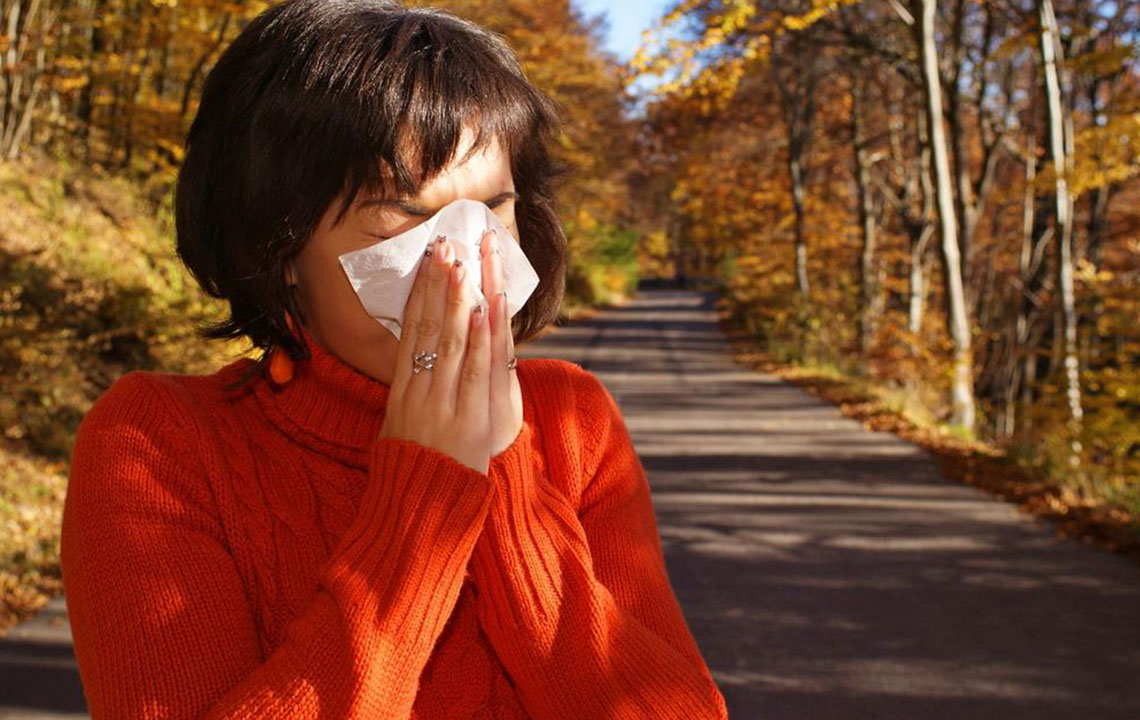Mold allergy – Causes, Symptoms and Treatment
Are you prone to allergy over several seasons in a year? Then you might be allergic to molds. Mold allergy, like any other allergy, triggers an irritation in the human immune system. Molds can be found anywhere- under your kitchen sink, on your bathroom floor, or in your basement. It is hard to outrun the molds, and many are airborne.
Molds are fungi, and the spores of molds can cause an allergic reaction in a person.

Possible causes of mold allergy
The immune system is triggered greatly by any foreign substance that invades the body. A mold allergy is caused by the invasion of any tiny airborne mold spore. It takes only minutes for the immune system to recognize it before it starts working against it. The body obviously recognizes it as a foreign invasion and fights against it. And when the body starts reacting, it produces histamine, which is the main cause of having itchy eyes with an activated tear gland, along with a runny nose and repeated sneezes.
Some of the very common molds that cause this type of allergy areAspergillus, Cladosporium, Penicillium, and Alternaria. An estimated 1000 molds have been identified in the United States. However, only a few dozens of them can cause mold allergy in people. Also, mold allergy is said to be prevalent from July until early fall. However, the molds can grow anywhere, be it inside the house or outside in the garden. Thus, mold allergy occurs around the year.
What are the common symptoms of mold allergy?
The body reacts when a foreign particle enters the body. The reactions are said to be the body’s mechanism of fighting an allergy. The body produces substances called histamines to fight against the foreign invaders. These histamines are responsible for several allergic symptoms like itchy eyes and running nose.
The fact that any and every kind of allergy has almost the same symptoms makes it very difficult to recognize it separately. Like any other foreign invasion, the body reacts the same way in case of a mold allergy as well. The common symptoms of mold allergy are:
- Repeated and continuous sneezing along with an irritating, runny or stuffy nose.
- A dry and scaly skin
- Watery eyes along with prolonged itching in nose and throat
- A post nasal drip and cough
- For people having asthma, the mold allergy can be far more dangerous, with some more symptoms such as:
- Shortness of breath coupled with difficulty in breathing
- Chest tightness that might need immediate medication
The symptoms of mold allergy might range from mild to severe, and it varies from person to person. The symptoms are usually more pronounced in a damp weather or when you are indoors or in outdoor spaces that have a higher concentration of molds.
What are the risk factors?
A few risk factors that may increase your chance of being affected by a mold allergy are-
- Family history of allergies
- Working in occupations that expose you to molds like baking, logging, carpentry, farming, dairy work, etc.
- High humid indoor spaces
- Poorly ventilated living spaces
- Indoor and outdoor spaces that are exposed to high moisture
How is mold allergy diagnosed?
To start with, the doctor goes through the patient history and analyzes it, before diagnosing mold allergy. When a mold allergy is suspected, the patient undergoes a series of skin tests and IgE blood tests. Prick tests are also done on the patients. If a prick or scratch by the fungi on the skin triggers an allergic reaction, then you will be diagnosed with a mold allergy.
How is mold allergy treated?
It is imperative to consult a doctor at the very initial stage of this allergy. Otherwise, people having asthma would be prone to more health risks. Prevention is better than cure, and this is no exaggeration in the case of a mold allergy as well. Staying away from molds is the best way to protect yourself from a mold allergy. When you are diagnosed with a mold allergy, the doctor may prescribe antihistamines and nasal steroids to reduce the symptoms of mold allergy. A few affected people are prescribed with allergy shots, which may help to reduce the symptoms.
Mold allergy can be diagnosed and treated. However, the symptoms of mold allergy are irritating, and you will have to bear the symptoms until the medications work and make you comfortable. Instead, if you are aware of how to stay away from molds, you will not experience an allergy. Keep your living spaces clean and dry. When you go outdoors, protect yourself from excessive moisture and humidity.